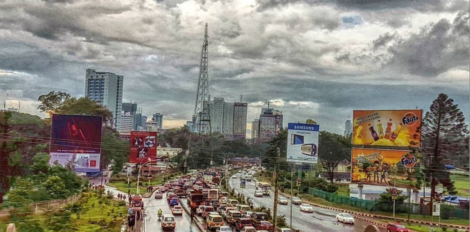Your podcast discovery platform
Curious minds select the most fascinating podcasts from around the world. Discover hand-piqd audio recommendations on your favorite topics.

piqer for: Global finds Technology and society Health and Sanity
Nechama Brodie is a South African journalist and researcher. She is the author of six books, including two critically acclaimed urban histories of Johannesburg and Cape Town. She works as the head of training and research at TRI Facts, part of independent fact-checking organisation Africa Check, and is completing a PhD in data methodology and media studies at the University of the Witwatersrand.
Could Car-Free Days Make Africa's Cities Healthier?
According to some reports, Kenya's capital Nairobi is the second most congested city in the world. Its central and arterial roads are frequently clogged by a mix of private and public transport, including the infamous and colourful matatus (minibuses) — and it gets worse when there's even a hint of rain (a five-minute drizzle can add an hour to your journey).
In order to reduce congestion, and the massive amount of time lost to people being stuck in traffic, the County government is proposing a number of solutions, from introducing light rail services to the more radical step of proposing entirely car-free days in certain areas and on certain days of the week.
While the move might be seen to be a little extreme, in this article published on academic hybrid website The Conversation, two urban health impact experts argue that the benefits of car-free days might be even wider than is commonly realised. Not only can they reduce congestion and traffic, but they can also have a significant impact on improving health outcomes of residents, predominantly by reducing air pollution caused by motor vehicles. According to the authors, Haneen Khreis and Mark Nieuwenhuijsen, studies have shown car-free days can reduce some types of pollution by 20% to 78%, and also may allow for more green spaces which, in turn, reduce the 'heat island' effect experienced in built-up areas.
The article explains the problems and solutions in very straightforward terms, and suggests that perhaps car-free days might be worth considering for all our urban environments.
